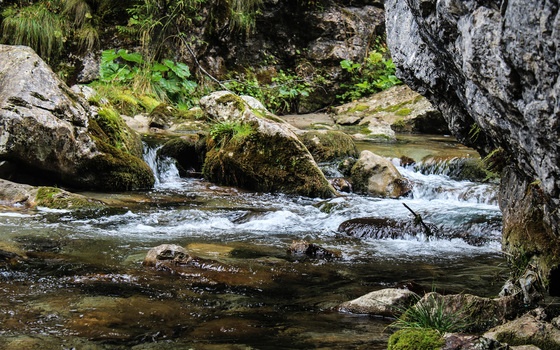
Who would have thought 2020 would have turned out to be the crazy year it was?
The year, for me, started with a torn rib cartilage which happened two days before New Year 2020 and which literally had me out of action until mid-March 2020.
Just as I started feeling well enough to getting back to normal life, lockdown happened. I live in a Retirement Village and because most of us have comorbidities, our complex was shut down in total lockdown two weeks before the rest of South Africa – our lockdown started on 16 March 2020 when the rest of South Africa went into lockdown on 26 March 2020.

COVID-19 lockdown really forced all of us to take a different view of our lives – how we lived from day to day, how we socialised, how we worked, what access we had to education and medical care and a host of other “little” aspects that automatically formed part of our lives.
We had to re-look at the way we prepared meals at home – less take out meals to be ordered and delivered with people being forced to cook their own meals with many hidden skills coming to the surface and many having to learn new skills (like baking bread).
Working from home seemed impossible until COVID-19 forced us to do it. Leaving home only when absolutely essential to do so, was unreal and surreal until we were forced to do it. Reliance on others to do grocery/emergency shopping, collection of medication, access to healthcare was all highlighted during the COVID-19 lockdown.

We never gave a second thought to our older friends and family living in retirement/old-aged homes and healthcare facilities – we could see them when we wanted to so never really made an effort to visit them, until COVID-19 lockdown regulations said “no visitors” and then the effects of these friends and family not having visitors suddenly hit home.
Restrictions also extended to social time out in nature – hard lockdown meant not being able to walk/exercise outdoors at all until restrictions eventually lifted to allow us a certain amount of time outdoors. The possibility of not being allowed to go outside at all and then eventually for a limited period of time only was never given any thought until COVID-19 lockdown happened.
Education – we could never think of life beyond the classroom. Physically going into a building called a School, into a classroom where a Teacher/Lecturer would be waiting to fill our minds with the necessary knowledge we needed to get through life not for one minute giving any thought to what would happen if we could no longer travel to a building called a School, sit in a classroom with a Teacher/Lecturer. We never gave any thought to the number of Learners (and Educators for that matter) who did not have access to the Internet or any form of digital communication.

COVID-19 lockdown most certainly turned the world (and our individual worlds) upside down that’s for sure. We were definitely not ready for this new Industrial Revolution.
Food resources, Beverages (soft drinks and alcohol consumption) – how we shop, what we buy and how much and how we store what we buy. Our hungriest and most vulnerable communities faced “a crisis within a crisis”.
Travelling – personal or public transport – our options – what are our options/alternatives?
How we celebrate personal milestones and big public holidays. The annual trek-to-the-beach, celebrating the exit of the old year and ringing in the new year.
The most important of all – our world of work. How we earn a living, our income streams – how secure are our income streams? Do we have more than one income stream? How can we secure more income through multiple streams rather than pushing for one Corporate job that would give us one fantastic income – until the carpet is pulled from under us?

COVID-19 lockdown has forced us to review our lives and to get by with a lot less than we thought we needed. It has forced us to look inward and to love ourselves and take better care of ourselves before taking care of others. It has taught us UBUNTU – to look around us and see where the needs are and to find ways to assist where we can to fulfil those needs.
Self-love and self-care has never been more important than now. Mindfulness and being mindful of others has never been more relevant and important than now.
2020 taught us to be more grateful, hopeful and more understanding of the meaning of togetherness . . . the meaning of love!
#goodbye2020
#lookingback
#reflecting
#happynewyear
#mindfulness
#gratitude
#love

























